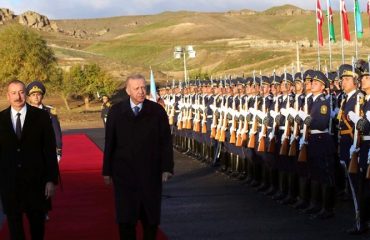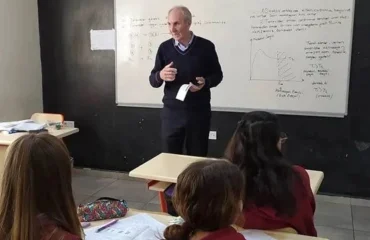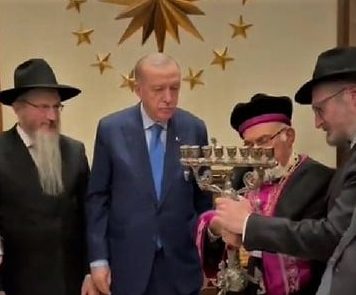
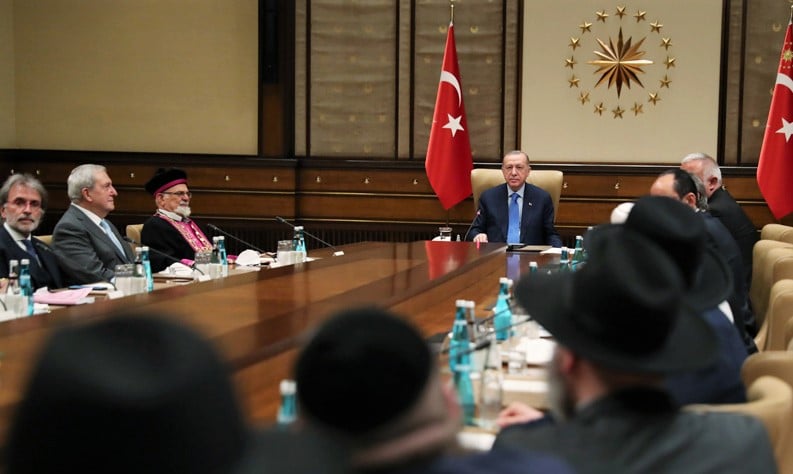
President Erdoğan hosted the members of the Turkish Jewish Community and the representatives of the Alliance of Rabbis in the Islamic States (ARIS) under the chairmanship of Izak Haleva, the Chief Rabbi of Turkey. He emphasized the importance of Turkey – Israel relations.
“Turkey-Israel relations are vital for the stability and security of our region. Of course, I especially care about your support in this regard. We are ready to improve our cooperation and make better use of our high potential,” President Erdoğan said to the members of the ARIS hosted at his Presidency on December 22.
ARIS was established with the initiative of the Turkish Jewish Community (TYT). It held its first meeting on 21-13 December 2021 at the Conrad Hotel in Istanbul. The first of its kind in the world. According to TYT sources, it is the first time that rabbis from different countries in Muslim-populated countries have come together in such a large and diverse manner. There were rabbis from Iran, also from Egypt and the UAE.
The meeting also had a political dimension. Russian Chief Rabbi Berel Lazar is known to be close to Russian President Vladimir Putin. The participation of Rabbi Chaim Hillel Azimov from the Turkish Republic of the North Cyprus (TRNC), which is not recognized by any country other than Turkey, is another example. The USA representative was Zaiman Lowenthal, New York Representative of the Iranian Jewish Community.
Rabbi David Sevi blessed the Presidency and recited the prayer for the leader and the state to prosper.
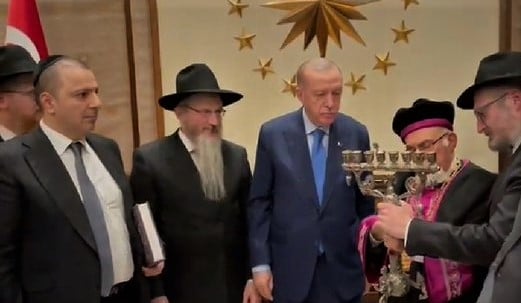
Erdoğan’s messages to rabbis:
Turkish Jewish Community applied to the Presidency, and rabbis from Kazakhstan to Azerbaijan, Uzbekistan, Nigeria to Uganda came to Ankara for a day.
“We are against antisemitism. Let’s fight Islamophobia together,” Erdoğan said to the members of the ARIS.
His whole speech can be summarized with a sentence: “We want to improve relations with Israel; we expect your support.”
Here are some quotes from his speech:
“Our warnings to the Israeli government aim to ensure that long-term peace and stability of the Middle East to become the primary standpoint in any approach to the issues.”
“The steps to be taken, especially on Jerusalem and the Palestinian issue, will contribute to the security and stability of the Palestinians and Israel.”
• “In this regard, I attach great importance to our revived dialogue with the President of Israel, Mr. [Yitzak] Hertzog, and the Prime Minister, Mr. [Naftali] Benett. Despite our differences of opinion on Palestine, our relations with Israel in the economy, trade, and tourism are progressing.”
After that comes the part where he asked for ARIS support to develop “vital” relations with Israel.
It is also noteworthy, especially in terms of the relationship between foreign policy and economic situation, that Erdogan included messages about trade and tourism in his political statements and invited only the Minister of Tourism, Mehmet Ersoy, from the cabinet to the meeting.
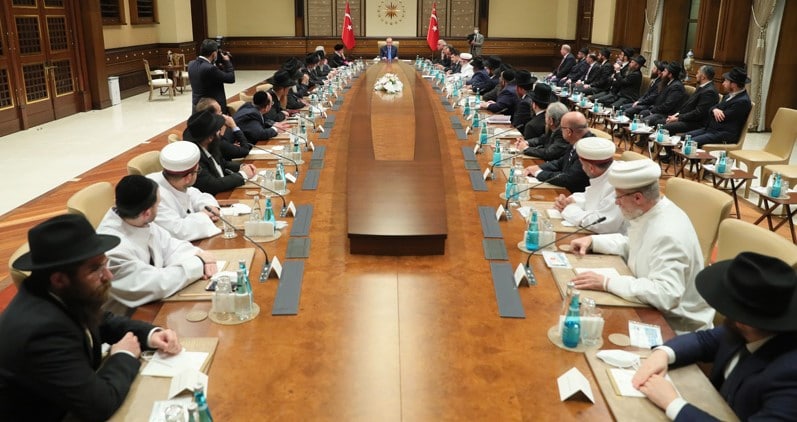
The journey
“Netanyahu is gone, the fight is over,” cliche should not be the statement to analyze relations with Israel. We can observe the deteriorating relations from the mediation between Israel and Syria in 2008, to the “One Minute” crisis in 2009, or the Mavi Marmara crisis in which Israeli commandos killed 10 Turkish citizens, to lowering the level of diplomatic relations.
On the other hand, it is necessary to see the normalization trend in relations with Israel within the framework of the need for normalization with the administrations that the Turkish Presidency deems hostile, especially Egypt and the UAE, as of 2021. In this process, it should also be taken into account that the Erdogan government’s search for foreign resources to improve the economy has peaked.
Then a question arises: If relations with Israel are so “vital”, why has the opposite been done for the last ten years? Couldn’t the rights of the Palestinians have been better defended if the government maintained diplomatic relations and had not taken sides in the polarization among the Palestinians? Wouldn’t trade and tourism be more developed?
It would not be right to compare this situation with Ottoman Sultan Abdülhamit’s increasing contacts with the international Jewish community during the economic downturn. After all, the Turkish Jewish Community made an attempt that serves the dialogue, undoubtedly positive. On the other hand, the picture is that the President of Turkey expects support from the ARIS to improve relations with Israel. We are experiencing the consequences of pursuing a foreign policy with domestic policy calculations.
